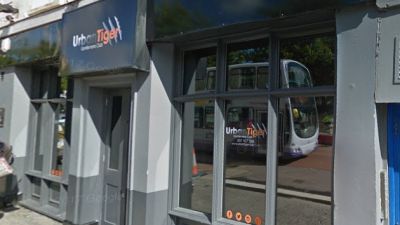Strip clubs to be banned under proposals by Bristol City Council

Strip clubs will be banned in Bristol if proposals by the city council are approved.
Councillors are being asked to sign off a new draft policy that would set the limit at zero anywhere in Bristol.
There are currently two sexual entertainment venues (SEVs), both in the city centre, while existing rules allow a third in Old Market/West Street - but the area has none.
The proposed ban, which would go to a 12-week public consultation, is expected to be considered by the licensing committee next Monday 8 March.
It is a major U-turn by the authority following years of pressure by women’s rights campaigners. But strip clubs, which feature topless and fully nude performances, are legal.
Surveys show most Bristolians are happy with them as long as they are away from certain areas, including schools, housing estates, parks, women’s refuges and places of worship.
If the policy is adopted by the council, both of the existing venues – sister venues Urban Tiger and Central Chambers – would be forced to close or change the business.
At the two clubs’ annual licence renewal hearings in 2019, pole dancers said they were feminists and had the right to choose how they earn a living.
However, strip clubs are opposed by prominent figures including Bristol mayor Marvin Rees, Avon & Somerset police and crime commissioner Sue Mountstevens, and Bristol West MP Thangam Debbonaire.
The City Council’s SEV policy dates back to 2011, although it is not legally required to have one. It currently allows a maximum of two venues in the city centre and one in Old Market/West Street.
A largely unchanged policy faced months of delays going out to consultation in 2019 because it failed to address concerns from women’s groups or find evidence to either challenge or uphold the assumption that banning strip clubs would drive the industry underground.
That work has now been carried out and, although between 59 per cent and 66 per cent of respondents agreed with maintaining current numbers, the proposed policy has been rewritten to ban them altogether.
A report to committee members said: “Strong representations were received from a number of groups who felt that to permit SEVs undermined the public sector equality duty and the council’s commitment to ensuring the safety of women in public spaces.
“A number of comments were made relating to the fear that some women experience when in proximity to these premises, whether objectively justified or not, which is relevant when the committee considers whether to impose a particular policy.”
The report said Bristol City Council faces a “significant risk of challenge if the proposed policy approach does not sufficiently address this duty”.
Its draft policy is based on a new equalities impact assessment report which outlined: “There has been some research into the lap-dancing industry and the potential links between these venues and sexual violence.”
It added Leeds University School of Sociology and Social Policy found in 2015 that one in four SEV performers had a degree and there was no evidence of forced labour, trafficking of women or connections to organised prostitution.
Neither is there any rise in crime associated with Bristol’s two pole dancing clubs, the report concluded.
But it said: “Other research has concluded that lap-dancing clubs normalise the sexual objectification of women, have a negative impact on women’s safety in the local vicinity and may attract and generate prostitution.
“There is evidence that the sexual objectification of women is linked to sexual violence perpetration in combination with alcohol use.
“There is also evidence in young people of a direct relationship between the sexual objectification of girls and aggression towards them.”
But the report added: “Whilst there is academic research relating to the damaging effects of sexual entertainment on attitudes to women and girls, we do not have sufficient local evidence to clearly link Bristol SEVs with an increase in crimes or sexual assaults in the vicinity of surrounding areas.
“A ‘nil cap’ policy approach would need to be justified on the basis that the overall benefit for citizens outweighs the potentially negative economic impact on a largely female workforce.”
Credit: Adam Postans, The Local Democracy Reporting Service
Read more: